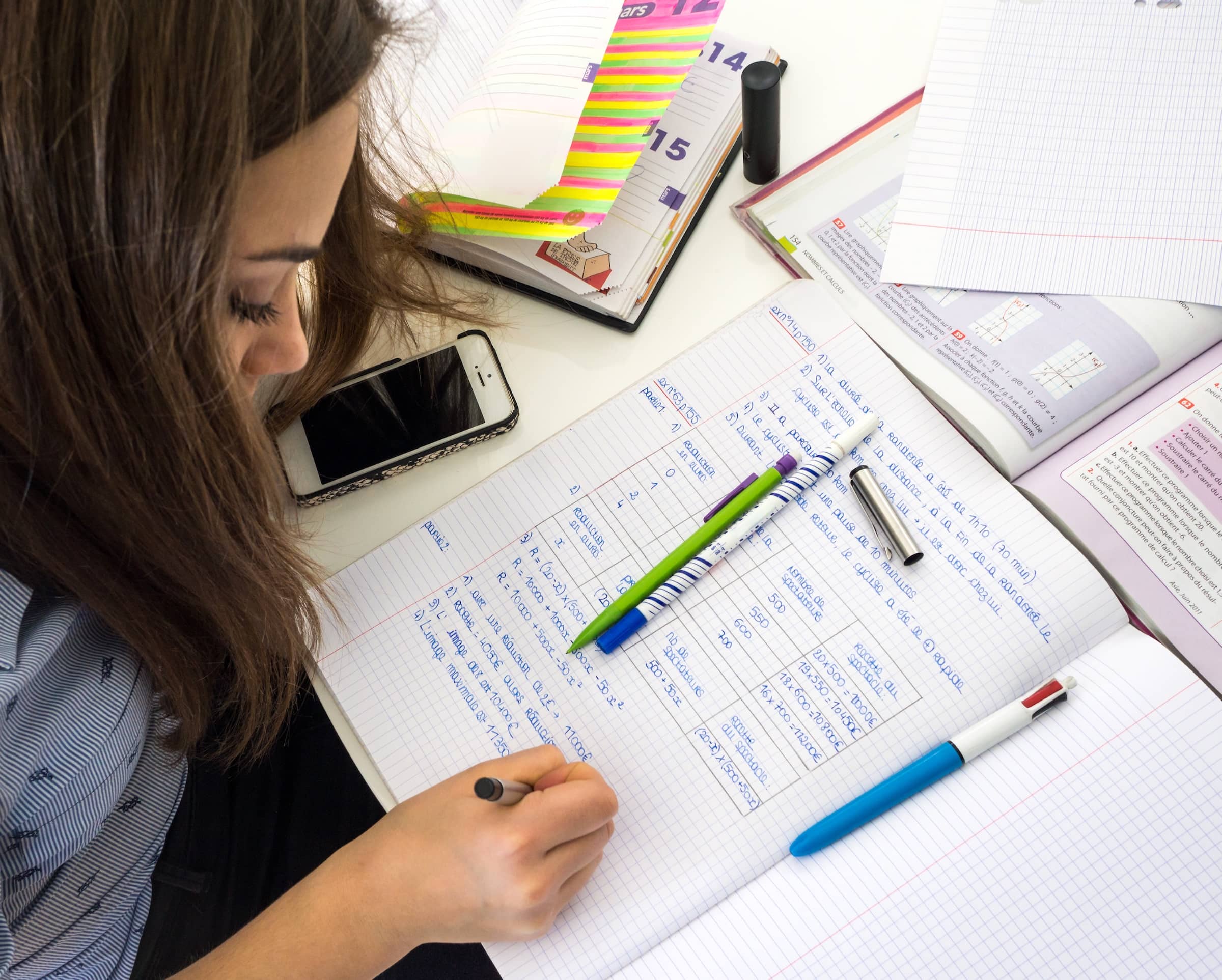As millions of students brace themselves for the next wave of exams, a stark warning has emerged: teenagers’ revision focus is slipping through their fingers at unprecedented rates.
According to a sweeping new survey commissioned by Mander Portman Woodward (MPW), the average teenager can concentrate on revision for just 14 minutes before surrendering to their smartphone.
Short Attention Spans and High Stakes
Parents are sounding the alarm. A whopping 86 percent insist their child “is not doing nearly enough to achieve the grades they need,” and 83 percent admit they’re at their wit’s end after squabbling about study habits up to four times a day.
Meanwhile, only 11 percent of 15- to 18-year-olds feel remotely confident about the exams looming on the horizon, with half confessing that dragging themselves back to the books leaves them feeling overwhelmed.
Distractions on Every Screen
What’s holding them back? Struggling to process information tops the list for 50 percent of teens, and 39 percent admit they’re constantly side-tracked by Snapchat and TikTok.
One in three say they feel perpetually tired, 29 percent confess to boredom at the sight of revision notes, and 21 percent simply have “better things to do.”
The Usual Suspects: Mathematics and Beyond
Top Excuses Teens Use to Get Out of Revising
| Excuse | % of Teens |
|---|---|
| I have a headache | 47% |
| I’m just too tired | 25% |
| I have a stomach-ache | 21% |
| Let me just finish this TV show | 20% |
| My laptop battery is dead | 17% |
| I need to tidy my room | 17% |
| I have revised absolutely everything | 15% |
| My phone battery is dead | 12% |
| The Wi-Fi isn’t working | 11% |
| I need to tidy my notes and desk | 9% |
| I can’t find a pen | 9% |
| I can’t find my laptop charger | 8% |
| I need to have a shower first | 8% |
| I’ve lost the book I need | 7% |
| Before I start, I am going to redo my revision timetable | 7% |
| I am going to reorganise my folders so that everything is easy to find | 7% |
| I’m just going for a run | 6% |
| I need to wash my hair | 5% |
| I can’t find my notepad | 5% |
| I was just about to vacuum the house | 5% |
It’s no surprise that maths reigns supreme as the greatest headache—60 percent flagged it as their toughest subject—while chemistry and physics each claimed 30 percent.
But the fallout goes beyond grades. “Time spent with revision materials isn’t necessarily an indicator of effectiveness,” warns Spencer Coles, CEO at MPW.
“Time spent with revision materials isn’t necessarily an indicator of effectiveness. Many students are putting in hours of work without seeing proportional results because they’re using strategies that feel productive but don’t actually help information stick.
Yet with so many saying that they wished they were better at revising, this isn’t about lack of motivation but finding the right method. When students receive guidance tailored to their individual learning styles, they tend to develop both the skills and confidence necessary for exam success.”
Excuses, Excuses—and a Cry for Structure
From headaches and stomach aches to dead laptop batteries, the top teen excuses for avoiding study read like a medical chart. Yet two-thirds of those polled (61 percent) wish they had better revision skills, and 32 percent believe a proper schedule would do the trick. A notable 34 percent even think going tech-free might sharpen their minds.
“It’s clear from the research that teens are struggling with revision and will do anything to avoid it. What’s particularly telling is that students themselves recognise they need help with a third saying that removing technology would help them focus, while others are looking for structured schedules and support,” says Coles.
Rethinking Revision: Beyond the Busy Work
Coles points out that updating timetables, rewriting notes verbatim and crafting elaborate mind maps all create the illusion of productivity without cementing knowledge.
Instead, experts suggest mixing active recall, spaced repetition and tailored guidance to help students reclaim their teens revision focus and build genuine confidence.
Key Takeaways for Parents and Educators
- Break study sessions into bite-sized, focused chunks (think 15–20 minutes).
- Encourage tech-free intervals and clear, achievable goals.
- Swap passive note-reading for interactive methods: quizzes, flashcards and teaching back concepts.
- Offer personalised support—tweaking techniques to each student’s learning style can boost both results and self-belief.
As exam day approaches, the message is clear: it’s not about logging endless hours but making every minute count. With the right strategies and a little structure, today’s teens can sharpen their focus and enter the exam room with the confidence they so clearly crave.
REVISION DO’S AND DON’TS – ADVICE FOR PARENTS
Revision and exam expert Spencer Coles, has been helping students get top grades at GCSE and A Levels for over a decade.
Here he gives his advice on how parents can best help their teens during the exam season.
Dos
- Avoid Siberia
Don’t let your teen revise in the Siberian isolation of their bedroom. Encourage them to use the dining room or kitchen table instead. It’s less lonely there, and they’re more likely to stay on track (and off their phone) if others are around. You can help by testing them, keeping their motivation up, and making sure the coffee keeps flowing!
- Plan to succeed
Help your teen create a revision schedule to ensure all topics are covered – and at the right time. Encourage them to tackle the harder topics, or least favourite subjects, first. This helps reduce the stress of uneven preparation, starting too late, or leaving too much until the last minute.
- Active revision
Discourage your teen from just lying on their bed reading. The “reading = revision” strategy can give the illusion of learning, but it’s passive. Encourage active approaches: answer questions, offer to quiz them, or suggest they try teaching the material to someone else (you’re great, but the dog is often more patient).
- Go for colour
Suggest they use mind maps, spider diagrams, Post-it notes, Quizlet, Memrise, mnemonics, storytelling, whiteboards, A3 paper, coloured paper, highlighters, and gel pens. They need to memorise the material—and a colourful approach helps. Black text on white paper is easy to forget.
- Turn detective
Remind your teen to find out exactly what the examiner is looking for. Encourage them to study past papers, mark schemes, exemplar responses, and examiner reports. These resources give valuable insight into how to shape their answers. Then make sure they practise accordingly.
- Trick yourself
If your teen tends to procrastinate, suggest they tell themselves they’re only going to revise for half an hour before taking a break, rather than committing to a full morning of slog. This helps them get started – and once they’re going, they’ll often keep going. Help them build in rewards throughout the day.
- Space it out
Warn against last-minute cramming. Explain that spacing revision over a longer period of time and revisiting topics at intervals helps move information into long-term memory and reduces stress.
- Take breaks so they don’t break
Remind your teen that their brain can only absorb so much information at a time. Therefore, ensure that they give it the opportunity and energy it needs to keep focused and re-focusing throughout the day. Encourage regular bursts of movement such as stretching, walking, or a few jumping jacks to refresh concentration and improve focus.
- Just because their friends are doing it, doesn’t make it right
Importantly, help your teen block out what other people are saying if it doesn’t work for them. Advise them not to be influenced by the way someone else is revising, and don’t let anyone else tell them how to revise. It must be right for them.
- Condition yourself
Towards the end of their revision plan make sure they’ve kept some past papers to replicate exam conditions. Encourage them to work in a quiet environment, time themselves and complete the full paper. Suggest they mark their own work using the mark scheme and sample answers.
Don’ts
- Re-writing notes
This often feels satisfying to your teen but is largely passive. They are not learning but instead just copying. Instead, suggest they summarise key ideas in their own words and then test their recall.
- Ignoring the syllabus
Warn against revising without referring to the official specification or syllabus – it’s risky. They might miss key content or revise things that will not be assessed.
- Highlighting everything highlights nothing
If every sentence is yellow, nothing stands out. Advise them to use highlighters sparingly to draw attention to key words or concepts, not entire paragraphs.
- Sticking to one subject for hours
This can lead to mental fatigue and lower retention. Explain that mixing different topics across a study day enhances memory and keeps things engaging. Help them get their study plan together.
- Cramming the night before
Trying to learn everything at once under pressure leads to overload. Explain that it is far more effective and less stressful to revise consistently over time.
- Keeping their phone nearby
Even on silent, their phone is a source of temptation. Suggest they place it in another room or use app blockers to maintain focus during revision sessions.
- Underestimating the importance of sleep
Sacrificing sleep to revise late into the night might feel committed, but it is counterproductive. Explain that sleep plays a vital role in memory consolidation and cognitive performance.
- Revising in bed
Their bed is associated with rest, not productivity. To stay alert and focused, encourage them to revise at a desk or table in a well-lit area.
- Relying only on what they like
It’s tempting to focus on favourite subjects or the topics they already understand. But this gives a false sense of progress. Explain that effective revision means tackling the hard stuff, not avoiding it.
- Working without breaks
Long revision sessions without breaks lead to mental fatigue and lower productivity. Suggest a structured approach (like the Pomodoro technique) to stay fresh and focused.





